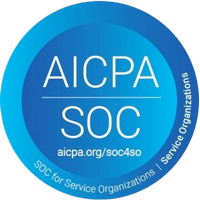Assisted living communities are unique among healthcare organizations. Not only is quality of care important, but so is a sense of long-term community. When searching for assisted living communities, many residents look for a place that feels like home. If your ultimate goal is resident retention, investing in healthcare employee retention might be your best bet. Read on to find out how employee and resident retention is related, and how to improve them both.
Healthcare Employee Retention Affects Quality of Care
Staffing shortages directly affect quality of care. According to a 2019 report from the National Center for Health Statistics, the average assisted living community is only able to provide 3.8 hours of direct nursing care. This is short of the recommended minimum of 4.1 hours. Without enough staff, fewer residents receive care, and their care is likely to be abbreviated.
Healthcare worker shortages have gotten worse during the COVID-19 pandemic, and may continue to worsen as Baby Boomers age. Even if your staff is fully dedicated to their work, there may simply not be enough hours in the day.
Long-Term Employees Connect With Long-Term Clients
The median length of stay for residents in an assisted living community is approximately 22 months, according to a report jointly prepared by the American Health Care Association and National Center for Assisted Living. This means that residents have the chance to form meaningful connections with both other residents and the staff working at the facility. When staff turnover is high, that sense of community is fractured. Without a sense of community, client turnover could also increase.
A Healthy Workplace Culture Leads to a Healthy Community
Residents may pick up on a workplace culture that is flawed or unhealthy. Disengaged employees don’t feel invested in their ALF community, and residents notice. In fact, a recent study by the Queens School of Business and the Gallup Organization found that disengaged employees have 37% higher absenteeism, 49% more accidents, and 60% more errors.
Loyal Employees Boost Facility Reputation
Having satisfied employees doesn’t just help you with healthcare employee retention. A reputation as a fair and empathetic employer can boost your profile with residents as well. Assisted living residents are entrusting you with a large part of their daily lives. No one wants to live somewhere where the employees are unhappy. Having a strong reputation will help you attract and retain residents, as well as boost the health of your company culture.
Healthcare Employee Retention Helps Your Bottom Line
It costs money and time to replace an employee. In fact, Home Care Pulse estimates that the average cost of replacing a caregiver is $2,600, though some experts estimate that the true number is closer to 6-9 months of an employee’s salary. When you’re understaffed, your ability to take in new residents is also diminished. Understaffing also leads to even higher turnover, faster burnout, and lower levels of employee satisfaction. Finally, saving money means you can provide a higher quality of care. When you’re struggling to provide a baseline of care, it can be hard to invest in updates for your community or perks for your employees, both of which make you stand out in a competitive market.
How Can You Improve Employee Retention?
Better Onboarding
Onboarding is your chance to give employees the best possible first impression and prepare them for their roles. Most nurse turnover happens in the first two years, so laying the groundwork for retention during onboarding is crucial. Use onboarding to connect your employees to your company ideals, and clearly lay out what they can expect from their roles. Giving employees extra attention during their first weeks as new hires can be a major key for retention.
Cultivating Careers
Understanding your employees’ career goals can help your healthcare employee retention strategy. Consider offering in-house trainings to help your employees work towards their goals. This will allow you to fill new positions internally as they arise. It will also help you work towards your retention goals. Career cultivation shows employees that you appreciate them as individuals.
Pay Competitively
Competitive pay will help you stand out from other assisted living employers. You may even save money by reducing turnover. Sign-on bonuses and additional perks could sweeten the deal. However, we understand that this is a difficult time for healthcare organizations. Government assistance may be required before you can afford to raise salaries. Attendance bonuses and referral bonuses are cash incentives that may help your employees without adding to your financial burden. However, a competitive salary is often not enough to convince candidates to work somewhere with a negative reputation. If you’re unable to offer a more competitive salary, try some of the tips below.
Tackle Burnout
Burnout can severely affect nurse turnover, and is common in healthcare settings. According to a 2018 survey, 31.5% of nurses who left healthcare cited burnout as their main reason—and this was before the pandemic. Tackling burnout head-on with open communication, flexible benefits, and other strategies, can help increase your employee retention. Making your employees feel listened to is an important first step. For more information, check out our resource on burnout.
Offer Flexible Benefits
Flexible benefits let nurses adopt the benefits that fit their own lifestyles best. It’s a huge perk, and one that boosts overall morale. According to MetLife, 72% of survey respondents said that they would feel more loyal to their place of work if offered flexible benefits. Consider being creative with benefits. For example, payroll benefits such as daily pay, pay cards, or pay in advance can help employees when they’re in a tough spot.
Better Hiring With Apploi
Effective hiring practices can help you decrease turnover for both residents and employees. Interested in learning more about how you can recruit, hire, and onboard healthcare staff quickly? Contact us today for a free demo of our software solution.





